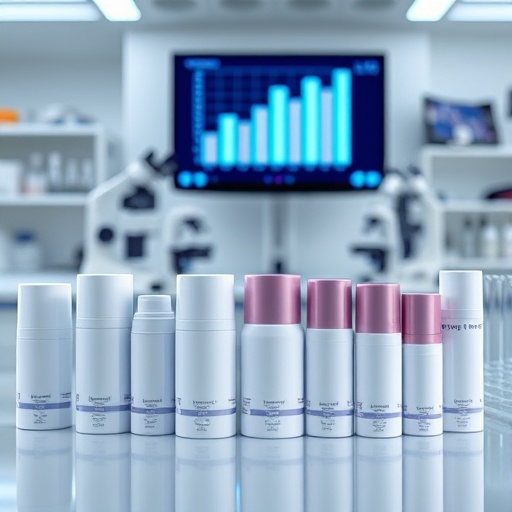In a significant move underscoring the importance of consumer safety, the U.S. Food and Drug Administration (FDA) has issued a recall on several popular deodorant brands following the discovery of potentially harmful contaminants. This action, which is garnering considerable attention from both consumers and industry stakeholders, highlights the ongoing challenges in ensuring product safety amidst complex supply chains and manufacturing practices.
The recall, which was announced earlier this week, targets a range of products from well-known brands that have become household names across the United States. The FDA’s decision comes on the heels of extensive testing and analysis by both the agency and independent laboratories, which identified the presence of benzene, a chemical compound recognized for its carcinogenic properties, in the affected products. Benzene is a colorless or light yellow liquid at room temperature and is widely used in the manufacturing of various industrial products. However, its presence in consumer goods, particularly those applied directly to the skin, raises significant health concerns.
The revelation of benzene contamination in deodorants is particularly alarming given the product’s widespread use and the potential for daily exposure. Deodorants are applied directly to the skin, often on sensitive areas, and their use is ingrained in daily personal hygiene routines for millions of individuals. The discovery has prompted swift action not only from the FDA but also from the companies involved, which have begun to pull the contaminated products from store shelves and distribution channels.
The companies at the center of this recall have expressed their commitment to consumer safety and are cooperating fully with the FDA to address the issue. In a joint statement, several of the affected brands have emphasized their dedication to resolving the situation promptly and transparently. They have initiated internal investigations to determine the source of the contamination and are reviewing their manufacturing processes to prevent future occurrences.
Industry analysts suggest that the contamination may have originated at some point in the supply chain, either during the procurement of raw materials or during the manufacturing process itself. The complexity of global supply chains, which often involve multiple suppliers and subcontractors across different countries, can make pinpointing the exact source of contamination a challenging task. This incident serves as a stark reminder of the vulnerabilities inherent in modern production and the critical need for stringent quality control measures.
The FDA’s recall has been met with mixed reactions from the public. While some consumers have expressed concern and frustration over the potential health risks associated with the contaminated products, others have praised the agency’s proactive approach in safeguarding public health. The recall also underscores the importance of regulatory oversight in ensuring that consumer products meet safety standards and do not pose undue risks to the public.
In response to the recall, consumer advocacy groups have called for increased transparency in the labeling and marketing of personal care products. They argue that consumers have a right to know what they are applying to their bodies and that clearer labeling could help prevent similar incidents in the future. These groups are also pushing for more rigorous testing and monitoring of consumer products, particularly those that are used daily and have direct contact with the skin.
The financial implications of the recall could be significant for the companies involved. In addition to the immediate costs associated with pulling products from the market and conducting investigations, the affected brands may face long-term impacts on their reputation and consumer trust. Rebuilding confidence among consumers can be a challenging and time-consuming process, particularly in a market where brand loyalty is often tied to perceptions of quality and safety.
Despite these challenges, industry experts believe that the recall could ultimately lead to positive changes within the personal care products sector. The incident may serve as a catalyst for companies to reevaluate their supply chain management practices and invest in more robust quality control systems. It could also prompt broader discussions about the need for industry-wide standards and regulations that prioritize consumer safety.
As the situation continues to unfold, the FDA has assured the public that it is taking all necessary steps to mitigate potential risks associated with the contaminated products. The agency is working closely with the affected companies to ensure that the recall process is thorough and effective, and it remains committed to protecting public health through rigorous oversight and enforcement.
In the meantime, consumers are advised to check their deodorant products against the list of recalled items provided by the FDA. Those in possession of affected products are encouraged to discontinue use immediately and follow the guidance provided by the manufacturers on how to return or dispose of the products safely.
This recall serves as a poignant reminder of the delicate balance between innovation and safety in the consumer goods industry. While the drive to develop new and improved products is a hallmark of modern commerce, it is imperative that such innovations do not come at the expense of consumer safety and well-being. As the industry grapples with the fallout from this recall, stakeholders at all levels will need to work collaboratively to restore consumer confidence and ensure that the products lining store shelves are safe for all to use.

Leave a Reply